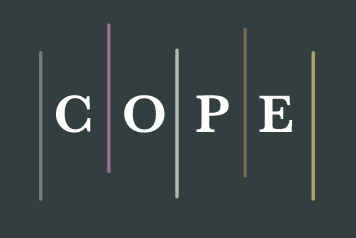Islamic Finance in the Globalized World with Special Reference to Equity Over Debt Financing
DOI:
https://doi.org/10.58355/maqolat.v3i3.153Keywords:
Islamic Finance, Globalization, Debt and Equity FinancingAbstract
The Islamic finance industry has significantly established itself in the global financial landscape since the latter half of the 20th century. Its constant substantial growth has surprised even those, not assured of its success earlier. In the economic recession of 2008, Islamic finance was termed as a safe, ethical, and vibrant alternative to the conventional financial system. In 2023, the global financial landscape faced several tough challenges characterized by geopolitical tensions, inflation and excessive debt. Despite these high challenges, the Islamic Financial Service Industry has continuously demonstrated remarkable growth. Approximately, 3.38trillion dollars of the United States is estimated to be engaged in this experiment. It has garnered attention from top global financial institutions like the International Monetary Fund, World Bank, and many other reputed financial institutions and it has equally received warm attention from global academic centers like Harvard University, Rice University, London School of Economics, and many other top universities of the world. It is currently operational in more than 75 countries via 550 Islamic financial institutions. Emerging concepts in conventional economics, such as green funds and ethical financing, constitute fundamental elements inherent in the Islamic financial system, which has consequently expanded the scope of the Islamic financial industry. Therefore, the present study explores the scope and viability of Islamic finance in the context of globalization, emphasizing equity financing as a preferable alternative to debt financing. It takes into account, how Islamic financing can help developed and developing countries to build a new world order that would be based on tranquility, cooperation, mutual help, sharing, and caring by relying more on equity financing than on debt financing. The present study discusses the repercussions of interest based debt on global economy and the need of Islamic finance to bloom economies of developed and developing countries at global level by avoiding channels of exploitative practices like interest, debt-trap, in-equality of wealth, etc. which eventually leads nations into poverty, debt, abject hunger, and un-employment. The study also examines why the debt relief packages provided to under-developing countries by developed nations have not successfully helped to address the issues of debt trap and in equality of wealth. Furthermore, the study reviews, whether Islamic finance exclusively serves the interests of Muslims only or benefits the whole humanity without any discrimination of caste creed, color, region and religion.
Downloads
References
Islamic Financial Service Industry Stability Report 2024, http: //www.ifsb.org, accessed on 9 January, 2025.
Abu Bakr Ahmad bin Ali, Jassas al Razi, Ahkamul Quran, Urdu Tr. By Abdul Qayyum, Shari'ah Academy, Islamabad, 1999, p. 426.
Abu Bakr Ahmad bin Ali, Jassas al Razi, Ahkamul Quran, Urdu Tr. By Abdul Qayyum, Shari'ah Academy, Islamabad, 1999, p. 426.
Siddiqi, M. Nejatullah, Issues in Islamic Banking Selected Papers, The Islamic Foundation, United Kingdom, 1994, p. 69.
Chapra, M. Umer, Towards a Just Monetary System, Islamic Foundation, United Kingdom, 1985, p. 109.
Ingo, Karsten "Islam and Financial Intermediation” IMF Staff Papers, March 1982, p. 133. Also on https://doi.org/10.5089/9781451956634.024
M., Nejatullah Siddiqi, 1994, Op. cit., p. 71.
Khan, M. Mansoor, Bhatti & M. Ishaq, Developments in Islamic Banking: The Case of Pakistan, Palgrave Macmillan, New York, 2008, p. 22.
Zaman, Arshad & Asad Zaman, Interest and Modern Economy, Islamic Economic Studies, 8(2), 61-74, 2001, April, p. 71. Also in M. Ayoub, op.cit., 2007, p. 56.
Jubilee USA 2007, Debt, Poverty and the MDGS, Debt and Millennium Development Goals, p. 23.
Khan, M. Mansoor & Bhatti, M. Ishaq, op.cit. 2008, p. 25.
Ibid, p. 25.
Paul Wolfowitz was the 10th president of the World Bank and an American political diplomat who was a former United States ambassador to Indonesia.
Firsanova, V., Statistical Analysis of Global Debt in the World Economy, (2024) Technology Audit and Production Reserves, 4(4(78), 38–42. https://doi.org/10.15587/2706-5448.2024.310351.
M. Ayoub, op. cit, 2007, p. 86.
Muhammad Younis is a Bangladeshi economist and social entrepreneur. He was awarded the Nobel Prize for promoting microfinance and founded Grameen Bank.
Climent M. Henry is a reputed professor and a prolific author of various works such as the Political Economy of the Middle East and North Africa, Globalization in the Middle East and North Africa, etc.
Siddiqi, Nejatullah, Issues in Islamic Banking: Selected Papers, The Islamic Foundation, Leicester United Kingdom, 1994, p. 50.
Chapra, Umer, Islamic and Economic Development, Adam Publishers & Distributors, New Delhi, 2007, p. 102.
Henry, Clement M. "Islamic finance in the dialectics of globalization: Potential variations on the "Washington consensus" Journal of Arabic, Islamic and Middle Eastern Studies (Australia) 5: 2 (1999), 25-37.
M. Ayoub, op. cit. 2007, p. 16.
Gordon Brown is a former president of the United Kingdom and a British Politician.
G., Brown, Gordon Brown Speeches 1997-2006, Bloomsbury, UK, 2006, pp.11, 15.
Wilson, Rodney, Islamic Financial Market, in M. Fahim Khan (Ed.), Islamic Financial Institution, IRTI, 1995, P. 7.
Downloads
Published
How to Cite
Issue
Section
License
Copyright (c) 2025 Bilal ahmad Ganaie

This work is licensed under a Creative Commons Attribution 4.0 International License.






















